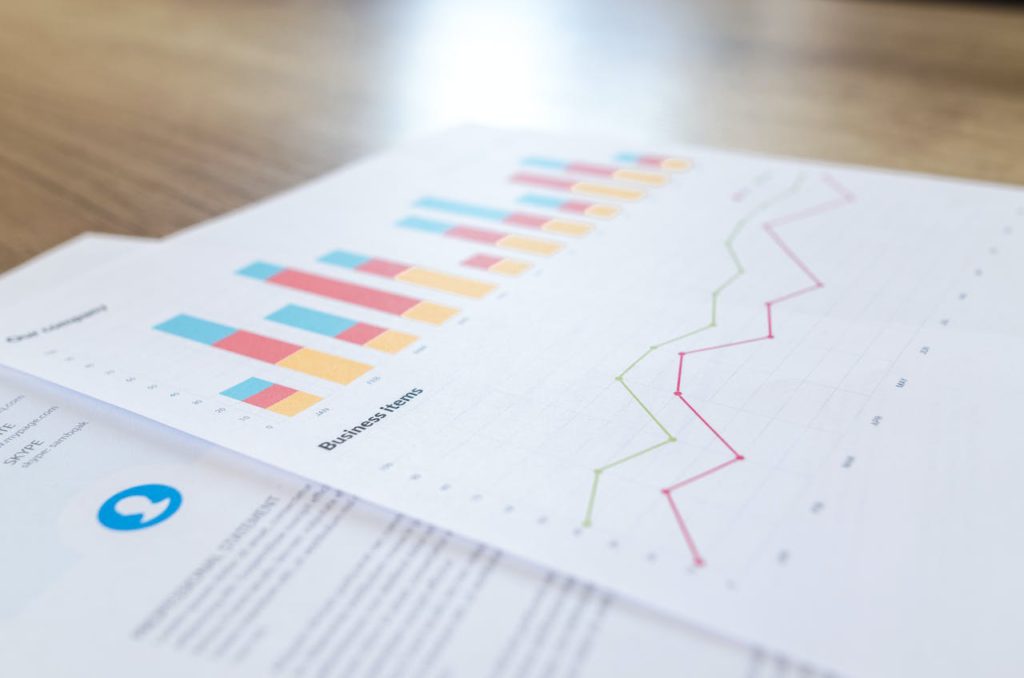In today’s data-driven business landscape, gathering, analysing, and leveraging data effectively can make the difference between success and stagnation. This is where Enterprise Resource Planning (ERP) systems play a pivotal role. While ERP systems are primarily known for their capabilities in managing business processes and resources, they also serve as powerful platforms for data analytics. This article will explore how ERP systems unlock the power of data analytics and why this synergy is critical for modern businesses.

The Convergence of ERP and Data Analytics
Historically, ERP systems have been the backbone of businesses, serving as centralised repositories for data related to finance, procurement, inventory, human resources, and more. These systems are designed to streamline operations, improve efficiency, and provide real-time visibility into various aspects of an organisation. As the importance of data-driven decision-making has grown, ERP systems like Technology One ERP have evolved to incorporate robust data analytics capabilities. This convergence of ERP and data analytics offers several critical advantages for businesses:
1. Data Centralisation: One of the fundamental features of ERP systems is centralising data from various departments and processes. This centralisation creates a single source of truth, ensuring that data is consistent and up-to-date. Data analytics benefits from this by having access to reliable, integrated data.
2. Real-time Insights: ERP systems often operate in real-time or near-real-time, providing immediate access to data as it is generated. This is invaluable for data analytics, allowing organisations to decide based on current information.
3. Data Governance: ERP systems typically include data governance features, which ensure data quality, security, and compliance. This is critical for data analytics, as accurate and secure data is essential for making informed decisions.
4. Cross-Functional Analysis: ERP systems cover various business functions, from finance to supply chain management. This breadth of data allows for cross-functional analysis, enabling organisations to identify correlations and insights that might not be apparent when looking at individual data silos.
5. Scalability: ERP systems can scale to accommodate these changes as businesses grow and their data volumes increase. This scalability extends to data analytics, allowing organisations to analyse large datasets without a separate infrastructure.
Critical Components of ERP-Enabled Data Analytics
To unlock the full potential of data analytics within ERP systems, several critical components come into play:
1. Data Warehousing: ERP systems often include data warehousing capabilities, which involve the collection, storage, and management of data. This data repository is optimised for analytical queries and reporting.
2. Data Visualisation: Effective data analytics relies on the ability to present insights in a clear and actionable manner. Many ERP systems offer data visualisation tools that allow users to create dashboards and reports.
3. Advanced Analytics: Beyond basic reporting, ERP systems can incorporate advanced analytics techniques, such as predictive modelling, machine learning, and artificial intelligence. These capabilities enable organisations to forecast trends and make proactive decisions.
4. Integration: ERP systems are most effective when they integrate seamlessly with other organisational tools and techniques. This includes data sources, external applications, and third-party analytics solutions.
5. User-Friendly Interfaces: To democratise data analytics, ERP systems often provide user-friendly interfaces that empower non-technical users to explore data and generate insights.
The Benefits of ERP-Enabled Data Analytics
The integration of data analytics into ERP systems offers several tangible benefits for businesses:
1. Improved Decision-Making: With access to comprehensive, real-time data and advanced analytics capabilities, organisations, including those partnering with experts like Technology One Consulting, can make more informed and timely decisions. This can lead to increased competitiveness and agility in the market.
2. Operational Efficiency: Data analytics within ERP systems can identify bottlenecks, inefficiencies, and areas for improvement within business processes. This knowledge allows for targeted optimisation efforts.
3. Cost Reduction: Organisations can reduce operational expenses by identifying cost-saving opportunities and optimising resource allocation. For example, predictive maintenance analytics can help prevent costly equipment breakdowns.
4. Enhanced Customer Experience: Understanding customer behaviour and preferences through data analytics enables businesses to tailor products and services to meet customer expectations, ultimately improving customer satisfaction and loyalty.
5. Risk Management: ERP-enabled data analytics can help organisations identify and mitigate risks, whether they are related to supply chain disruptions, financial volatility, or cybersecurity threats.
6. Strategic Planning: Data analytics facilitates long-term strategic planning by providing insights into market trends, customer demands, and emerging opportunities. This enables organisations to adapt and innovate proactively.
7. Compliance and Security: Data governance features in ERP systems ensure that data is handled in compliance with regulatory requirements and industry standards. This is crucial for maintaining trust and avoiding legal and reputational risks.
Challenges and Considerations
While the benefits of integrating data analytics into ERP systems are substantial, there are also challenges and considerations to keep in mind:
1. Data Quality: To derive accurate insights, data quality is paramount. Organisations must invest in data cleansing, validation, and enrichment to ensure the reliability of analytics results.
2. Skill Gap: Data analytics requires a certain level of expertise. Organisations may need to upskill their workforce or hire data analysts to fully leverage these capabilities.
3. Data Privacy: With the increased focus on data privacy and regulations like GDPR, organisations must ensure that data analytics within ERP systems comply with data protection laws.
4. Cost of Implementation: Integrating data analytics capabilities into ERP systems may include additional costs, including software licenses, hardware upgrades, and training expenses.
Integrating data analytics into ERP systems represents a significant evolution in the capabilities of these critical business tools. It empowers organisations to harness the full potential of their data, driving better decision-making, operational efficiency, and strategic planning. While there are challenges to overcome, the benefits of ERP-enabled data analytics make it a compelling investment for modern businesses seeking to thrive in the data-driven era. As the business landscape evolves, the synergy between ERP and data analytics will remain a key driver of success.

